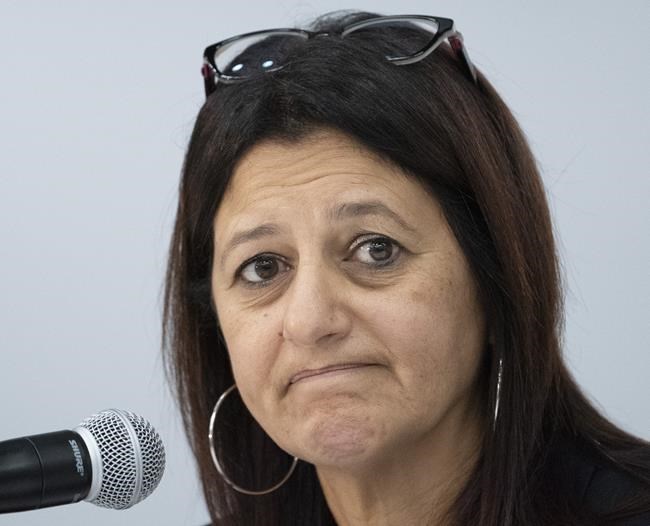MONTREAL — Quebec's decision to focus on protecting hospitals, coupled with the chronic dysfunction in the long-term care system, contributed to many long-term care deaths at the start of the COVID-19 pandemic, the province's coroner said Monday.
Health Department officials were aware that older people were among the most vulnerable to COVID-19, yet officials failed to give specific instructions to long-term care centres, Géhane Kamel said in her new report.
"This indicates that even though we were aware, we nevertheless chose to keep seniors, specifically people living in (long-term care centres), in a pandemic planning blind spot," Kamel said.
Her inquest looked at 53 deaths in long-term care during the start of the COVID-19 pandemic, including 47 at the Herron, a private Montreal-area care home. She said Quebec's early pandemic response suffered from a lack of co-ordination and from a Health Department that was over-centralized.
Almost 4,000 people died in the province's long-term care homes, known in Quebec as CHSLDs, between March 2020 and June 2020, accounting for nearly 70 per cent of the deaths reported in Quebec during the first wave.
Among Kamel's recommendations is for the province's public health director — who is also an assistant deputy health minister — to be given more independence. She said Dr. Horacio Arruda, who was public health director in spring 2020, may have made decisions that were influenced by the political and economic interests of the government.
Kamel also said there were "grey areas" in Arruda's testimony during her inquest and that it remains unclear exactly what steps were taken to prepare the long-term care sector between January 2020 and March 12, 2020, the date the first COVID-19 death she investigated took place.
"In the light of all the evidence, I am convinced that the authorities that govern us completely missed the portion of preparation concerning (long-term care centres)," she said in the report. "All the signs were present but weren’t taken into account. If that was indeed the case, why not simply say that? Naively, I believe that the families need to hear the truth — even if that truth shows a path strewn with obstacles and uncertainties — that hurts and reminds of us of vulnerability in the face of health crises.
"How can we believe that we can confront the next crisis if the leading players are not ready to recognize where their preparation was deficient?"
At the Herron, Kamel wrote, the staff was obviously unprepared for the pandemic, adding that there were not enough nurses and there were shortages of basic supplies, including diapers and sheets. But Kamel also criticized Lynne McVey, the head of the regional health authority that took over the facility, pointing out that the majority of deaths at the care home occurred after the government stepped in.
Meanwhile, Health Minister Christian Dubé told reporters Monday that while he needed more time to analyze the report, he said many of Kamel's 23 recommendations have already been implemented.
"I'm not surprised by the recommendations," he said in Delson, Que., near Montreal. "The main recommendations were already implemented."
Kamel's report recommends that the province's college of physicians review the decision by doctors who treated patients at three long-term care centres — including the Herron — to continue offering remote consultations in the spring of 2020 despite the large number of deaths.
"It is difficult to imagine that life-and-death decisions could be made only on the basis of a telephone call," she wrote, adding that it is "concerning" that patients were put into palliative care without a real doctor's visit.
Opposition party Québec solidaire said the report shows the need for public health to be independent of government.
"In light of this report, one has to wonder whether public health decisions were made on the basis of science or politics," health critic Vincent Marissal said in a statement. "One thing is certain: only a public and independent inquiry into the management of the pandemic will allow us to get to the bottom of this issue."
Asked about whether the government would call an inquiry, Dubé told reporters that multiple agencies, such as the coroner's office and the office of the health and welfare commissioner, had already conducted investigations into the province's management of the pandemic.
This report by The Canadian Press was first published May 16, 2022.
Jacob Serebrin, The Canadian Press



